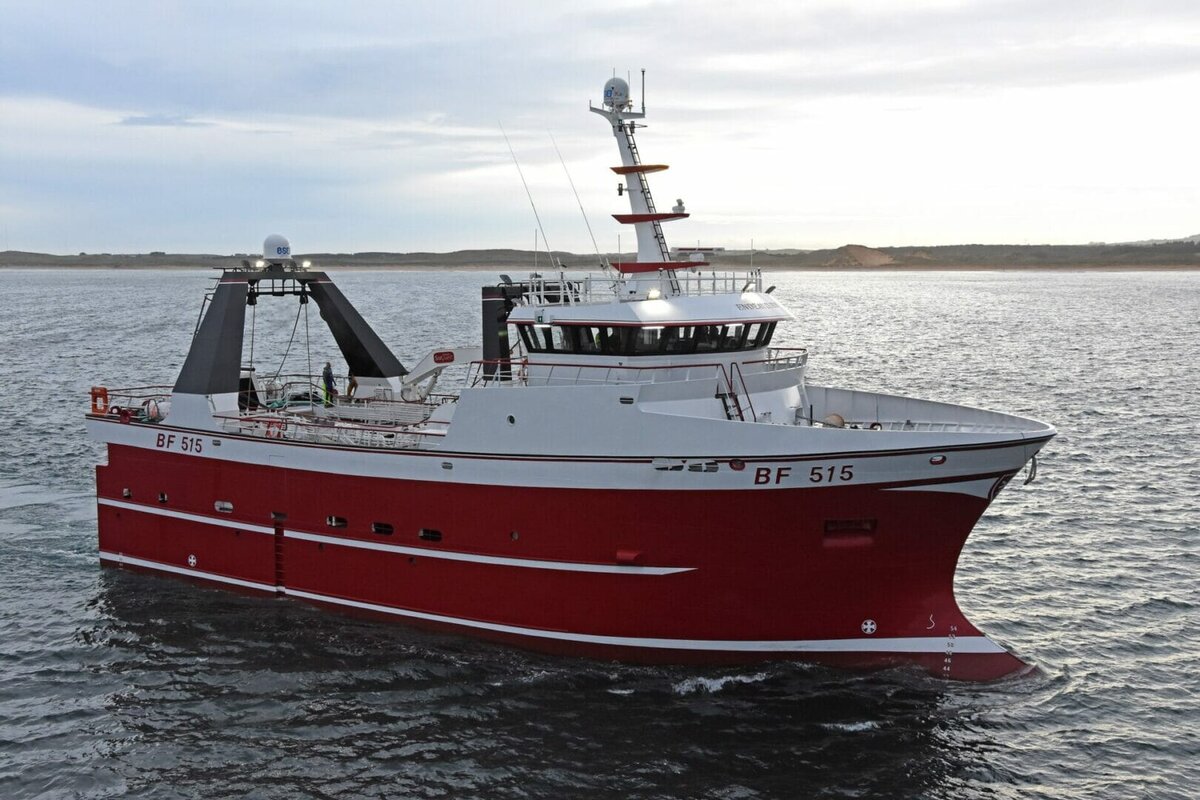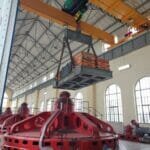Author: Mark Guest – Product Manager for Power Distribution Systems
When NU-Design Limited, a marine electrical services business based in Peterhead, Aberdeenshire, Scotland needed help in the designing of a very specific control centre specification, the company’s engineers contacted Rittal UK to design a marine switchboard for a distribution and motor control centre (MCC) to be installed in a new Scottish trawler, the Endeavour V.
The Challenge:
The Endeavor V is a Bureau Veritas +1A1 fishing vessel, she was designed by Macduff Shipyards Ltd. While the hull of the boat was built at Finomar shipyard, Szczecin, Poland. The MCC panels feed-out to all the electric motors onboard the vessel, the main switchboard feeds-out to both the 415V distribution boards and the 415/230V transformers, which in turn feeds into the applications on board the commercial vessel.
For this project, the requirements were very specific, in terms of the control centre specifications and operation. They had to be fully compliant with marine regulations, as well as sized and configured to fit within a small, onboard switch room.
Another added pressure was that the project needed to be completed within a very specific timeframe, because the switchboard could only be installed while the Endeavour V was being built on land. Once the build was completed, that window of opportunity for the switchboard to be installed would be closed.
The Solution:
After receiving the brief, Rittal’s engineering team created an initial design for the switchboard, using Rittal’s own configuration software. After an initial review with the client, the design was then reconfigured into an L-shape, so that it could be positioned into a tight corner in the Endeavour V’s switch room.
To achieve the full build within the project time frame, the installation and commissioning were completed by specialist electricians from R.D. Downies Ltd, a marine electrical and engineering company based in Fraserburgh, Scotland.
Rittal is proud to be a long-time, specialist supplier to the maritime industry. Due to its longstanding relationship with the maritime industry, Both the Ri4Power and the RiLine60 busbar systems, have been benchmarked against the latest requirements from the marine specification authorities, including Lloyds and DNV. However for this project Rittal’s engineers, needed to abide by further rules for the busbar’s design. Including fault-rating certification and ensuring the copper busbar met a minimum cross-sectional area. In addition the power distribution and motor-control sections needed to be separated within the L-shaped switchboard, to provide clarity for the operator and for easier routine maintenance.
Maritime switchboards are different from land-based switchgear, the main difference being that they are powered by generators. This particular trawlers switchboard required two generators as well as an onshore mains supply connection, to be used at full capacity of power usage of circa 500 amps.
Once the busbar system had being installed, with a bus-coupler and a special connection for the on-shore mains connection. Rittal’s engineering team had to develop a system, that would accommodate the out-going cable connections, given that space was at such a premium in the switchboard, It had to be methodically thought through with precision.
Once the final design was completed, it included the capability for close power monitoring of the generators, a set of synchronizing controls and other highly specific, marine options requirements, such as clear labelling of controls, circuit feeders, interlocking of components, handrails, high IP-ratings, and an easy-to-follow maintenance guide.
Pete Buchan, Electrical Design Engineer at NU-Design comments, “Rittal was selected because of the marine-type approval, availability of stock, and the ease of construction for the modular assembly.”
After the success of the Endeavour V, a second switchboard is now under construction for another fishing trawler for NU-Design, which was due for completion during the summer of 2021.
Further information at www.rittal.co.uk and www.friedhelm-loh-group.com or on twitter @rittal_ltd.








